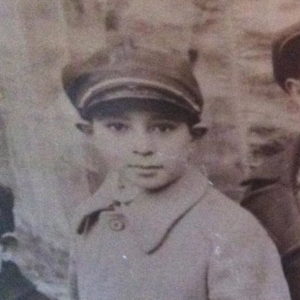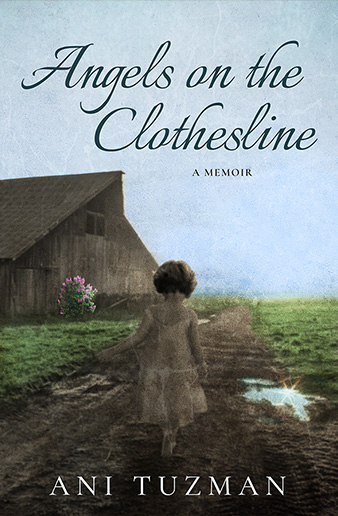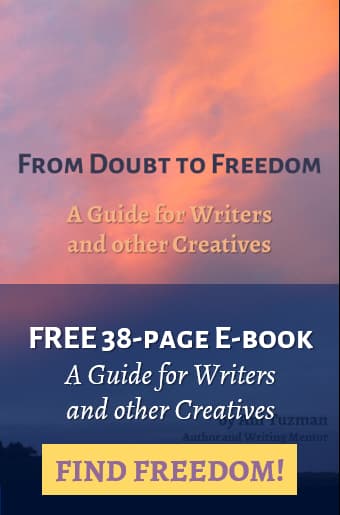Note: I wrote this on Wednesday, intending to post it today (Friday). Today came and I had second thoughts: I wondered if the piece was too personal, wouldn’t really be all that relevant to others, and perhaps might be best kept in my journal. Then I re-read my draft and decided to go ahead. Bottom line: this piece is about awakening compassion ——regardless of the relationship or one’s circumstances——and about using writing in the process. To the extent that we awaken true compassion for ourselves and each other (including “strangers”), to that extent can we create peace, both in ourselves and in our world.
Some time ago, I found a compelling passage in a small-in-size-huge-in-impact book called TRUE LOVE, A Practice for Awakening the Heart by the Buddhist monk and teacher, Thich Nhat Hanh. The passage explores awakening compassion within a painful relationship and the potential of such compassion to transform us—even if the relationship is with someone who has died. The example used by Thich Nhat Hanh was the relationship of a son to his deceased father.
So moved was I by the passage, I used it as a spark in one of my writing groups, although I knew at the time that I was not diving as deeply into the practice Thich Nhat Hanh introduced as I might.
Earlier this week, upon spotting this much loved book, I picked it up and, as is my practice with certain books, I closed my eyes, took a breath, and opened the book—curious as to where I would be led. (Rather than recalling anything specific I had previously read in the book, I remembered the tender loving-wisdom emanating from its pages.)
 When I opened my eyes, there it was, that passage about the son and his father, and with it a gentle, powerful invitation to bring more light into my relationship with my father—a relationship that continues beyond his death. Awed and grateful for the synchronicity, I sat down and reread slowly.
When I opened my eyes, there it was, that passage about the son and his father, and with it a gentle, powerful invitation to bring more light into my relationship with my father—a relationship that continues beyond his death. Awed and grateful for the synchronicity, I sat down and reread slowly.
Thich Nhat Hanh writes about a young American who came to practice meditation in one of the monk’s meditation communities. The man, asked at one point to write a letter to his mother, did so with no difficulty. But when it came to writing to his father, who had just died, he could not. The young man suffered greatly each time he thought of his father because of the pain in their relationship. He could not find his way to writing to him.
Thich Nhat Hanh continues:
“I proposed the following practice to him: for one week to practice mindful breathing, saying to himself, “Breathing in— I see myself as a child of five.” When one is a little boy at five, one is very fragile and vulnerable. As he was breathing in, he saw himself as the object of his own compassion. During the second week he meditated on his father: “Breathing in—I smile at the little boy who was my dad.”
Thich Nhat Hanh goes on to describe the man’s steady practice. Breathing with awareness, he was present with his father’s image as a child. When the man became able to truly grasp that his father had once been a child who had suffered a great deal, compassion arose in his heart. That night he wrote his first letter to his father, which transformed him completely, leading him to find peace in his heart where for so long there had been pain.
Thich Nhat Hanh concludes with the following:
“Meditation is the practice of looking deeply into the nature of your suffering and your joy. Through the energy of mindfulness, through concentration, looking deeply into the nature of our suffering makes it possible for us to see the deep cause of that suffering.
If you can keep mindfulness and concentration alive, then looking deeply will reveal to you the true nature of your pain. And freedom will arise as a result of your sustaining a deep vision into the nature of your pain. Solidity, freedom, calm and joy are the fruits of meditation.”
WRITING AS WITNESS. Join me?
Thich Nhat Hanh speaks of the power of meditation to help us witness our suffering and to lead us to freedom peace and joy.
Writing our way into the space of the heart can become a form of meditation, a practice of looking and listening deeply. Just as in meditation we sit in silence, we can write in silence—witnessing the oft noisy, busy, protesting, inventory-taking mind, while remaining rooted in the silence within—— from which the abilities to witness and to write as witness arise.
Writing as a meditative practice can lead to freedom, peace and joy.

My father as a boy
It is my intention in the coming weeks to engage in the practice Thich Nhat Hanh recommended to the young American: to look first at my picture as a young girl with the awareness, “Breathing in— I see myself as a child of five.” Then “Breathing in—I [will] smile at the little boy who was my dad.” My intention is to write, not only a letter to my father, but to journal about what arises——engaging in mindful breathing and mindful writing to help me sustain a place of witness.
Note: I share my intention and what follows to inspire your own reflecting and to invite you to join me, making this practice as malleable as need be so it serves you.
Is there a relationship (could be your relationship with you) that might benefit from being witnessed and held with genuine compassion?
Since I was quite young, I’ve tried to imagine what my father faced as a boy in Poland when the Nazis invaded. I almost made it my mission to fathom his pain fleeing his home, commanded to do so by his mother in order to save his life. I not only imagined, but was relatively obsessed with trying to fathom my father’s and mother’s pain as witnesses and survivors of the Holocaust.
So what is different now about this practice to which Thich Nhat Hanh is inviting me? I will find out. But I already suspect that the key to what is different is the witnessing.
When a child and even for the decades that followed as a young woman, I swam, often feeling like I might drown, in intense emotion. I was easily overcome: by sorrow that felt like a black void; by an unquenchable longing to relieve my parents’ pain—spawning the impossible desire to be good enough to make them happy; by fear (and the lack of safety) in a world that could be so horrifyingly cruel and dehumanizing to others; by an unrelenting need to change that world; and by feelings of inadequacy to compound the enormous sense of failure my father carried.
I did not recognize my father’s profound sense of inadequacy until much later, as the layers of his bravado became transparent enough for me to glimpse the frightened, even terrified boy inside. But had I really seen that? I questioned. My father: Mr. Invincible, terrified deep within? It was in my father’s final days and hours that I saw the terrified one particularly vividly.
So we might ask: isn’t Thich Nhat Hanh’s practice something we have already experienced, whether seeing the frightened, bullied one within the bully or, if the relationship has not engendered pain, just clearly recognizing and feeling compassion for the suffering of those we love? If this is the point, then have we not already experienced this and the attendant compassion? For me the answer is yes and no.
I have never been able to look at, to be with the suffering (whether staring hard or turning away) that my parents and others endured in the Nazi Holocaust without creating more suffering within myself: a relentless sense of responsibility, an urgency to relieve the suffering, helplessness, guilt, and/or the fear of suffering that could completely engulf me if I let myself truly feel it.
You may have seen a painting called “The Scream” in which Edvard Munch depicts a skeletal, desperate looking face with gaping mouth, fiery colors swirling around the terribly alone figure. In another version, it is just the gaping mouth and hollow eyes that are prominent. When I saw that image as a teenager, it captured the inexpressible rage and terror that seemed to occupy my every cell, thankfully, not to the exclusion of love and joy that could even become ecstasy. But I did move through the world carrying suffering like a snail its home on my back, suffering always casting its shadow over my life.
So I wonder…
What would it be like to be with my father as a boy, to be with his experiences and witness all this with pure compassion, free of pain, resistance, and the desperate wish that it could have been otherwise?
What if I can be completely present to my father’s entire life journey, witness what arises, and trust that I will not be swallowed in pain, but rather that I will be strengthened and enriched by being able to hold that compassion without the side effect of more suffering?
Can I face choices my father made as an adult that perpetuated and generated suffering——viewing these actions and their consequences with neither blame nor excuse, but with pure compassion for him and for others others who felt pain as a result?
And what if the ability to be completely present with compassion for all the dimensions of being alive, including unfathomable human suffering, actually leaves me freer of ego need and fear, freer to express true love?
What wonders might arise from this place of compassionate witness?
Like meditation, writing can lead us (especially when practiced in tandem with meditation) to silence and the inner witness of all. In the “space” of inner stillness and witness, we greet our sublimely human capacity to feel pure compassion, to know true love and joy.
I invite you to join me in using writing to root you in witnessing—whatever the relationship, individual or situation you choose to witness. The individual, relationship or situation witnessed need not be a “troubled” one in order that compassion and insight sweeten it.
Will you join me in trying Thich Nhat Hanh’s suggestion (or some variation thereof) and in sharing your experiences?
If you would like to experience the healing joys of writing, I would love to support you! Write to me and tell me what’s on your mind and in your heart. Learn more about working (and playing) with Ani.
G'Mar Chatima Tova
I close with this customary greeting whose literal meaning is: "a good final sealing." I will add to that: May you know the love of which you are made. What better than to know this?
With gratitude,
Ani
Your comments make this blog a conversation!
I would love to hear from you.
To avoid spam all comments are moderated by Ani. So if you don’t see your comment show up, not to worry; your comment will be up within within 24-48 hours






Ani, I love this practice of contemplating the self as child, or contemplating another loved one in their child state. I know I’ve been healed by doing this sort of thing in the past. Taking it a step further than looking at a photograph, I once made a stuffed doll to represent me, a doll with my name. I talked to and loved the doll as a metaphor for loving the child within me.
Of course, it was so much more than a metaphor. It was a real healing.
I think the meditation you suggest invites us to find the innocence in the child self, and the compassion in the adult self.
Thanks for sharing!
Thank you, Nanette, for your sharing.
How tender and bold your practice with the doll and how it opened your heart to you. What a direct, intimate being with you, unfiltered by conditioning.
There is something so powerful and really transforming in embodying the knowledge of the truth of who we are, so it doesn’t remain in the realm of metaphor or spiritually correct teachings. We have a direct, irrefutable experience of the Love we are and, even if that experience seems, at times, inaccessible, it has forever awakened us out of the “sleep” of ignorance of our true nature.
Thank you for your reflections.
Hello Ani,
Your writing is very timely … just this past week I have had an unexpected and very welcome reunion with my Dad; now 95. I had the wonderful treat of him reading some of his favorite poems to my Mom and me. In his room I saw the picture of him (about 8 or 9 years old) with his long curly locks; seated on a bench next to his older brother. As I looked at that innocent, smart, and mischievous face, I began to connect with all he has done in his life; and understand that he is still all of that; although now in an older body. I felt grateful that my birth was from him (well, 50%!) and also grateful to connect again in a lyrical way with his sensitivity for the first time in many years.
Since the death of my dear friend’s older sister last July (actually on my father’s birthday, July 27) I have experienced a renewed appreciation not only of my older sister, but of my parents. Although over the years I have acted many times in a selfish, inconsiderate way, I have since been reaching out wholeheartedly with a genuine wish to be at peace when each of our times comes.
I’m grateful for your sharing, Ani, and for your reaching out to the place inside each of us from which we journey.
With loving spirit,
Mahi
Dear Mahi,
Thank you, so much for sharing this! What amazing synchronicity, hearing about your visit to your father and the picture of him as a young boy! I love what you said about all he ever was, mischievous, energetic, etc., still being who he is even in his older body. What a moving observation and one that can transform your “present” with him.
(Perhaps you will want to engage in the practice that Thich Nhat Hanh has offered us to even enter more deeply into being with your father as a boy? It can certainly yield riches in a relationship that was not troubled as well.)
You write of appreciation; how wonderful when we are awakened to appreciation– and well before the death of the one we are appreciating!
I am very moved by your closing words, thanking me for “reaching out to the place inside each of us from which we journey.” That is such a perfect way to describe what I want to do as I write and how I want to journey——from that place inside.
Blessings, Mahi.
I think you have expressed what others also grapple with in seeing the suffering that those close to them or those they don’t know endure. And I am reminded of one of the sparks you gave for a month, the one that asked if you could find a way of seeing something ugly in such a way that it was no longer ugly, but beautiful (or something like that). And I think looking at those” ugly” things that way entails finding a way of seeing, and experiencing life as always a gift though obviously it doesn’t look that way sometimes. And I share with you the idea that meditation is a way that can lead to that seeing and experiencing of life. And once we have the sense that this is true, when we see something so awful that we can’t reconcile it with Truth right away, at least we can know it is reconciled with Truth,((also with Love and Beauty) and the why and how it is may come (or not),but our trust in life will have grown, and our love for life. A way, meditation or otherwise, to that seeing and experiencing of life is essential in the transmuting of suffering, and I couldn’t agree with you more here on that. Much Love and Thanks for the sharing of your thoughts,, Lorraine
Thank you, thank you, Lorraine for your thoughtful response. One of the powerful things I take from your reflections is what you said about the “awful and ugly” things also being reconciled with Truth as well as with Love and Beauty—even if we cannot fathom this at the time or ever. So back at you: thank you for sharing your thoughts! ~Ani
Loved, Loved your share. Thank you for your beauty, your courage and the invitation.
It has planted seeds that I will nourish and grow.
All my Love.
In beauty it is done.
blessings,
Amy
Dear Amy, should you feel like sharing about the seeds and how they grow, please please do.
Hi, Ani–
This is a wonderful invitation.
Thank you.
Meggie
Meggie, as you accept the invitation, I would love to hear how your experience unfolds. ~Ani